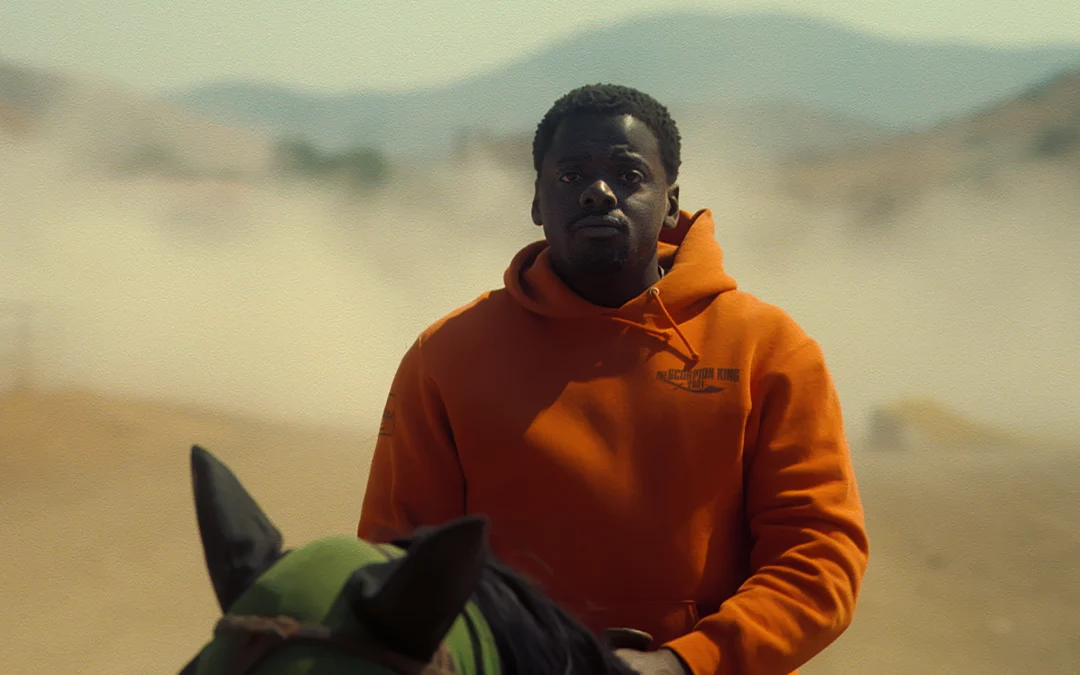For the last five-odd years, I’ve had a recurring nightmare. The details and circumstances vary, but the concept is always the same. I see some kind of incredible spectacle—a tornado, a brilliant sunset, even the arrival of a spaceship. My first instinct is to grab my camera and photograph it, but I am always foiled in my attempt. Sometimes my equipment is in another room, and I can’t find it. Often I have my equipment, but for some maddening reason I can’t get my lens to connect to my camera body. But the most infuriating—and frequent—scenario sees me with everything set up and ready to go, only when I click the shutter, nothing happens. The auto focus won’t grab the subject, or the camera just won’t shoot. Whatever the situation, the result is the same: I miss the shot.
I was reminded of this nightmare while watching Jordan Peele’s latest film “Nope,” which broadly centers on a brother and sister who are determined to get photographic evidence of a UFO. This personal connection—among other things—made me want to like the film very much. Unfortunately, the good pieces never quite came together, and even left me concerned about the eerily familiar trajectory of Peele’s career.
A pair of dramatic opening scenes get “Nope” off to a tension-building start. In the first, a blood-soaked chimpanzee stalks the remains of a television studio he has rampaged. In the second, a pair of ranchers are surprised by a sudden shower of projectiles out of the sky, and one (Keith David) is killed by what appears to be an everyday nickel.
From there the film eases into its present day setting as we meet the characters who have survived each encounter. OJ (Daniel Kaluuya) is the son of the dead rancher, and now the owner of a struggling business providing horses to local Hollywood productions. Jupe (Steven Yeun) is a former child actor who survived the chimp attack, and now runs a Wild West theme park down the canyon from OJ.
We spend most of our time with OJ and his charismatic sister Emerald (Keke Palmer), who suspect that a UFO is responsible for their father’s death and other unexplained events around the ranch. After they recruit a local electronics salesman (Brandon Perea) to outfit the ranch with a high-tech surveillance system, the duo determines that high quality visual evidence of the UFO is their best ticket to financial security.
Tensions with Jupe’s park add to the unsettled feeling around the ranch, and it doesn’t help matters when Emerald steals one of their horse statues to bait the UFO. But eventually “Nope” settles in on a showdown between its primary characters and whatever is causing all the strangeness in the area.
“Nope” benefits from some great raw material, a knack for tension, and the reputation of its director, whose earlier films (“Get Out” and “Us”) have set a high standard for excellence in the horror genre. Like those films, “Nope” also touches on elements of racial tension, though not as predominately, and this time around the social commentary seems more focused on our cultural fixation on spectacle and celebrity.
The trouble is that the different pieces never quite come together into a satisfying whole, and some of the most vivid elements—such as the chimpanzee attack—don’t feel as critical late in the movie as they seemed to be early on. The third act showdown offers a good dose of widescreen wonder, but it doesn’t feel like enough of a payoff after the expectations set by the first act’s cryptic moodiness.
The result is a sci-fi/horror hybrid that isn’t “bad,” it’s just “fine.” But next to its predecessors—especially “Get Out”—it recalls the slow decline of M. Night Shyamalan’s early films, which started strong with “The Sixth Sense” and “Unbreakable” before tapering off through “Signs”—another sci-fi/horror film with a so-so third act—and “The Village” before bottoming out in the late ‘00s.
Fortunately, some of Shyamalan’s work has been more of a return to form, but hopefully Peele won’t have to travel quite so far on that same road. “Nope” definitely has enough going for it to justify a peek—especially if you’re a Peele fan—but the key to this one might be managed expectations. It may remind you of your existing nightmares, but it probably won’t inspire any of its own.
“Nope” is rated R for profanity, violence (often implied more than seen), and frightening imagery.

